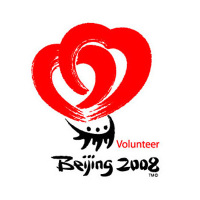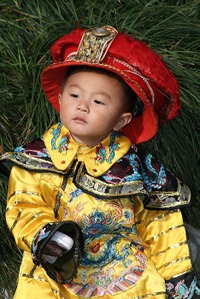
The trouble with China is there is no trouble with China — not among the Chinese.
Despite all our rhetoric about China’s human rights abuses and its horrible environment, the Chinese people are actually quite happy. A Pew poll this year found that, while Chinese people will complain about rising prices, the rising wealth gap or government corruption, 65% are satisfied with their government.
One can argue there is a severe disconnect between how Chinese see themselves and others see them. The Chinese see themselves in a positive light, while their neighbors distrust them.
Partly this is Olympics fever. I recall it from Atlanta’s own experience with it, back in 1996, and it wasn’t until Eric Rudolph’s bomb went off and Munson Steed ran his shell game that anyone questioned anything of what was going on. The legacy of those games is still mainly positive. The economy boomed for years afterward, and Centennial Olympic Park has become a major tourist destination, where it was formerly a collection of warehouses, and would have remained such without the Games.
Mainly this is a wealth effect, which government policies get credit for creating. All the talk of America attracting "huddled masses yearning to breathe free" emerged in the late 19th and early 20th centuries, when wealth disparities were at their height, when our industrial revolution was new, and when the poor lived in utter wretchedness.
Before this boom some 90% of Chinese people had no concept of what money could bring. Now hundreds of millions enjoy TVs, refrigerators, fast food, and an ease their parents could only dream of. Sure, it comes with problems, but the trade-offs seem worthwhile.
Two things are inevitably going to happen after this Olympics to change today’s rosy glow, and we need to watch out for them:
- The "Little Emperors" now being brought up in single-child
splendor are going to grow up, and see there is more to life than just
accumulating wealth. As satiation takes hold, questions will arise.
This coming generation shows every indication of becoming like
America’s own Baby Boomers, and this is actually a good thing. - The economy is going to hit a brick wall. China can’t power its
growth through coal much longer. It can’t just export for much longer
— its markets are all tilting downhill. All the issues and fissures
which are being papered over now are going to crack wide open.
An autocracy, which China is at its heart, can hold down rising anger
for longer than a democracy, which must respond quickly. But the
inflexibility of any autocratic system is like a metal under stress —
it is subject to sudden, catastrophic failure, while a democracy can
adjust.
China’s inflexibility will cause it great pain in the next decade.
These are its good old days. We need to be ready for that, with
something other than condemnation. We need — the world needs this and
not just America — to be ready for a true dialog, ready to engage in
that dialog in Chinese.
We also need to treat China in a mature way, as a great power
responsible for its own actions, not as a small power we can bully. We
need to meet China in all the world’s marketplaces — the market of
goods and the market of ideas. America, if its people are wise, won’t
be alone in this. We will have the rest of the democratic world with
us.
We need to grow up toward China quickly, because once the earthquake
comes we won’t have time to learn what must be done. Growing up toward
China means respecting Chinese people, Chinese history, and Chinese
wealth, while listening closely to the criticisms of the Chinese people
and letting them know they are, in the end, responsible for their own
government and their own lives.
That’s a message that will get through to the Little Emperors. It won’t
get through to their parents or grandparents. As it gets through, China
will evolve. What it evolves into will be up to the Chinese people. But
we need to engage, in depth, with whatever it is.
Instead of condemning China we need to engage with the
Chinese people in every way we possibly can. They, not the government,
will be the China of the future and they, not the government, are who
we must respect.












